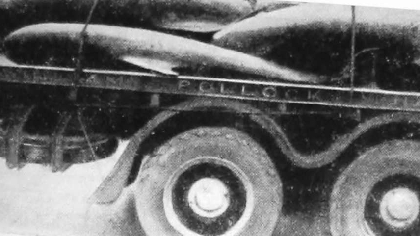
A Chronicle news team raced to Mottram when reports came through that whales from Scotland were heading for the village.
But as it turned out, it wasn’t to cover a good news story.
The whales were just seven of 147 that had washed up from the sea at Dunbar, and none had survived.
The tragedy happened in late May 1950, and the reason they made the journey of hundreds of miles to Mottram was because W. Hey and Sons owned a fertiliser business in the village.
The family firm had the task of turning the remains into various uses, including fertilisers and oil for hardening specialised engineering tools.
The seven whales arrived roped to the back of open-topped trucks, a scene that no doubt shocked anyone who caught the sad sight of them.
The Chronicle said how the whales came to become beached was a mystery, but it could have been as a result of what is happening today but 75 years later - global warming.
For one theory put it down to ‘the gradual warming of the Arctic temperatures over a number of years which was having a big effect on underwater life’.
So it seems the threat of global warming, acid rain and emissions caused by fossil fuels was around even then.
Other suggestions were that the doomed creatures could have been after shoals of whiting and herring, or that they themselves were being hunted by cannibal whales.




